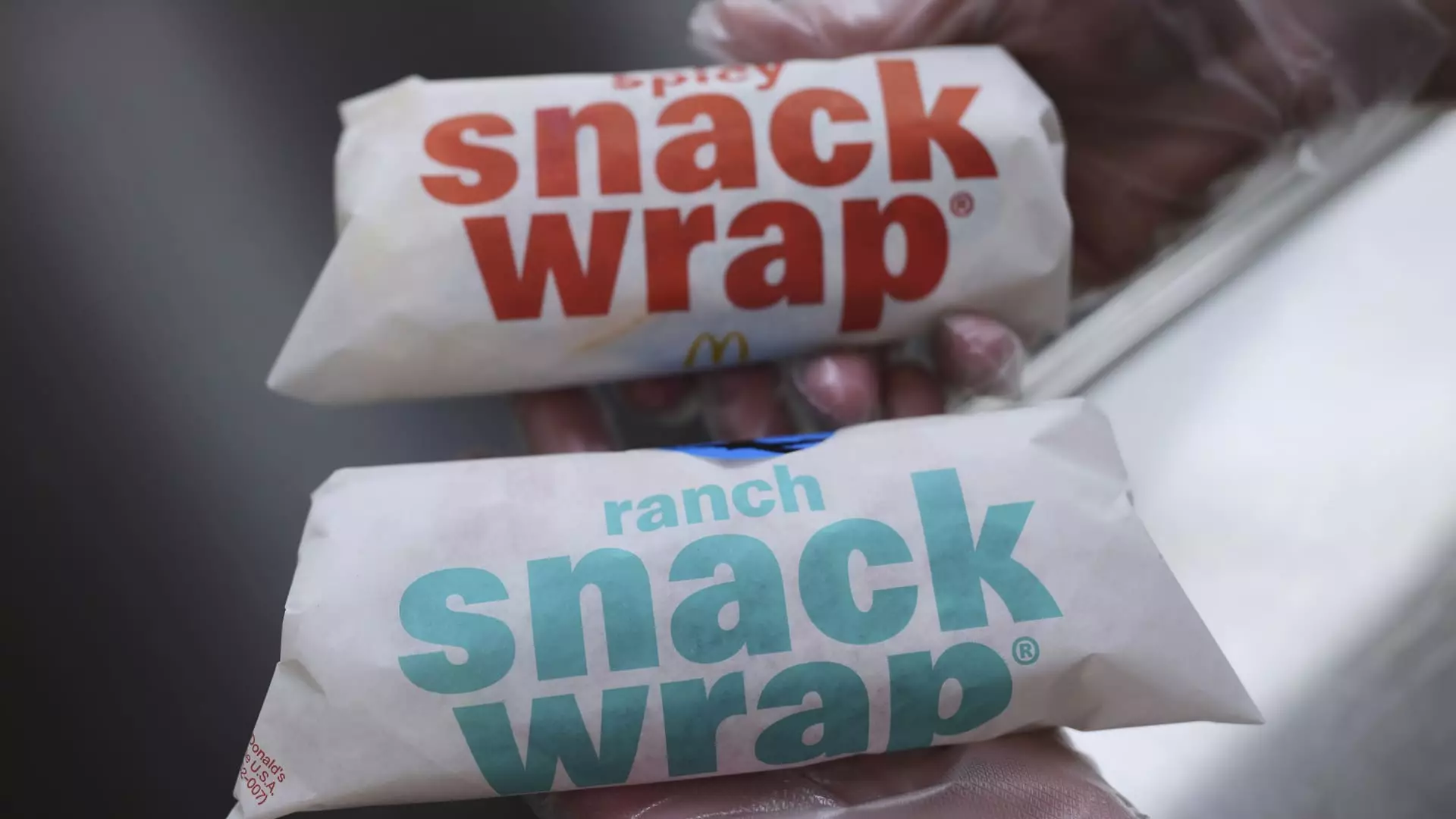The sudden comeback of McDonald’s Snack Wraps represents more than just a menu update; it symbolizes a strategic gamble rooted in nostalgia and market insight. After nearly a decade of absence, this beloved item has returned, and initial data suggests it’s striking a chord. The choice to bring back a product that once thrived speaks to McDonald’s desire to reconnect with a slice of its past that consumers still hold dear. However, does reliance on nostalgia truly guarantee sustained growth, or is it just a fleeting attempt to ignite excitement amid sluggish sales? The answer suggests a mixture of both, but the heightened consumer response indicates that McDonald’s may be wise to leverage its legacy rather than continually chase fleeting promotional gimmicks.
The rapid resurgence is no coincidence. The first few days reported double-digit traffic increases, underscoring a pent-up demand that had been quietly simmering. This move is rooted in understanding consumer psychology—people crave familiarity, comfort, and a sense of belonging. In an era where fast-food giants often pivot towards menu innovation and high-concept marketing, doubling down on familiar favorites may be a more sustainable strategy that cultivates brand loyalty and emotional resonance. Still, it remains to be seen whether this trend can be sustained beyond the initial social media buzz and if McDonald’s can transform this temporary revival into a long-lasting fixture.
Market Challenges and the Power of Customer Loyalty
McDonald’s past performances paint a stark picture of the challenges the company faces. Recent quarters have shown significant declines, with the first quarter marking the worst U.S. same-store sales dip since the pandemic’s peak disruptions of 2020. Against this backdrop, the Snack Wrap’s comeback appears both strategic and necessary. The brand seems to recognize that in a landscape dominated by health-conscious choices, premiumization, and competitive pressures, revitalizing core products fiercely tied to nostalgia can serve as a subtle yet potent response.
The loyalty data collected via Numerator further emphasizes this point. An impressive 90% of surveyed late adopters plan to buy the Snack Wrap again, with most having already visited McDonald’s multiple times this year. This is evidence that once the chain captures consumer affection through a short-term promotion, there’s a potential to deepen loyalty. It’s a reminder that in fast-food, emotional demarcation often outweighs purely economic factors. If McDonald’s can leverage this emotional pull without over-commercializing or diluting its brand, it can foster a more resilient, loyal customer base.
Yet, relying heavily on limited-time offers and nostalgic reintroductions carries inherent risks. Discount-driven traffic can erode profit margins, and such efforts tend to attract price-sensitive customers rather than building genuine brand affinity. The true challenge lies in translating this initial interest into sustained patronage, which involves consistently innovating around core values rather than just reviving old favorites. Without strategic evolution, the Snack Wrap — no matter how popular now — risks becoming a passing trend rather than a cornerstone of the brand.
Balancing Innovation and Tradition: The Road Ahead
McDonald’s has historically thrived by balancing tried-and-true items with innovative offerings. The reintroduction of the Snack Wrap, coupled with new products like the McCrispy Strips, demonstrates an understanding that consumers crave both comfort and novelty. Yet, the company’s broader strategic challenge is whether this wave of nostalgia can underpin a more holistic renewal. Relying solely on past successes neglects the evolving tastes of a more health-conscious, digitally engaged audience.
Furthermore, the forthcoming earnings report on August 6 will be a litmus test for whether these small victories translate into genuine financial turnaround. A 7% increase in U.S. same-store sales in Q3 so far suggests a promising start, but the sustainability of these gains will depend on how McDonald’s continues to innovate without losing sight of its core strengths.
The success of the Snack Wrap also underscores the importance of understanding consumer behavior in today’s competitive environment. Loyal customers frequent McDonald’s more often, and their enthusiasm for returning special items illustrates the importance of maintaining an emotional connection. The chain’s challenge is translating this leverage into a broader, more consistent pattern of customer engagement that isn’t solely reliant on periodic product relaunches.
Ultimately, McDonald’s must decide whether to view the Snack Wrap revival as a one-off marketing stunt or as a strategic component of a long-term brand renaissance. In a marketplace where consumers are increasingly discerning, authenticity—coupled with consistent innovation—will determine whether this attempt is a fleeting flash or a meaningful foundation for future growth.


Leave a Reply